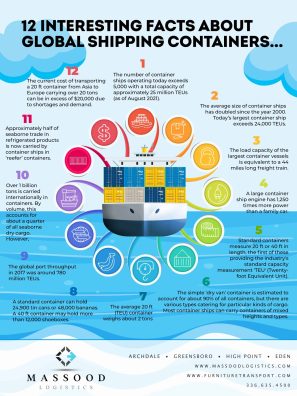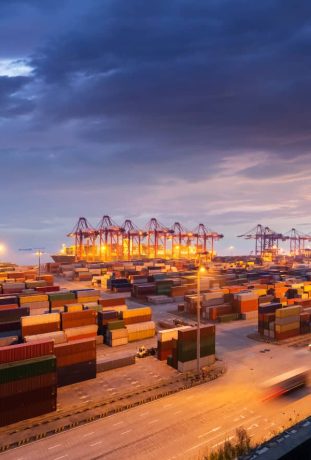How and why the supply chain shortage is affecting you and how a freight consolidator could be part of the solution.
SUPPLY CHAIN SHORTAGES & FREIGHT CONSOLIDATION SOLUTIONS
The supply chain shortage is affecting everyone. It's no secret that this shortage is due to a number of factors, but the problem remains the same: long supply chains, high costs, and a shortage of goods available.
The latest statistics indicate that this shortage is getting worse, and is having large impacts on businesses, suppliers, retailers, and consumers. Learn how a freight consolidator could be part of the solution to this problem.
Warehouse Shortages in the Logistics Supply Chain
When the pandemic caused by the Covid 19 virus arrived in the US, it was followed by a nationwide wave of panic buying of daily necessities like toilet tissue, paper towels, soup and bread. But by summer of 2021, it appeared to most of us that the pandemic was under control and that the shortages of everyday goods were over.
We were wrong...big time. As Summer rolled into Fall, new alarm bells began to ring when suppliers reported a lack of warehouse inventory for everything from laptops to new automobiles. As the weeks spun by, the list of affected goods got longer and longer….lumber, tires, tools, cell phones, fabric, paper, aluminum, toys, games, and meat.
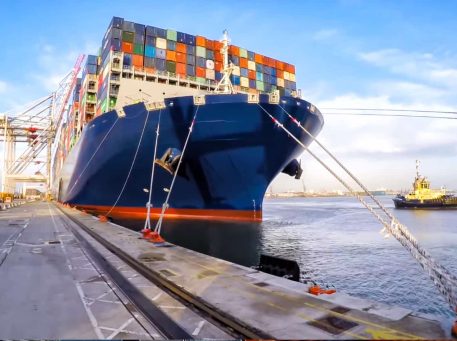

The experts point everywhere and anywhere for the root cause of these economic pandemic shortages..
- The cargo freight blockage of the Suez canal for three months.
- Similar cargo ship bottlenecks at points on Los Angeles, Miami and China.
- Lack of dock workers at these cargo ports due to the COVID-19 outbreak.
- Worldwide shortage of computer chips needed for nearly everything.
- Rising fuel prices.
- Shortages of trucks and truck drivers.
- The overall effect of the COVID-19 pandemic.
Supply Chain Bottlenecks and Product Shortages
A Shortage of One thing Affects the Production of Everything Else
One thing has become painfully apparent...a shortage of anything anywhere affects the production of everything everywhere.

For instance, consider upholstered furniture. This hot item requires wood frames, steel and foam. If the fabric comes from Vietnam and the wood ships from Brazil, with steel coming from coal fired plants in China, then you have an order backlog totally dependent upon any one of these critical raw materials. At this point, every supplier is dependent on every other supplier to meet commitments and delivery dates.
A look at the above list of issues illustrates how this supply chain reaction affects the worldwide distribution.
The Suez Canal and the Worldwide Supply Chain
The Suez canal was blocked by a ship stuck crossways in this critical waterway and shipping channel. The blockage lasted from March 23 through 29, 2021 but that was long enough to upset the worldwide supply chain. This waterway carries approximately 12 % of the world’s container freight and more than 8.2 billion Euros worth of goods were held up every day, The container ship that ran aground was called the Ever Given and was holding 18,300 containers but held up 367 other container ships, each carrying similar or larger cargos.
The Blockage of the Suez Canal and the impact on the Global Supply Chain
“The blockage of the Suez Canal will increase the negative impact on global supply chains in the coming weeks, as the availability of empty equipment, particularly in Asia and Europe, will be affected,” Reiner Heiken, chief executive of U.S. headquartered Hellmann Worldwide Logistics, told Reuters at the time.
Shipping Ports Around the World
At the writing of this article, there were more than 25 million shipping containers on the ocean headed for ports in California, New York, Florida and around the world, many carrying orders for Amazon and other major retailers and etailers.
More than 5,000 container ships are on the water right now but many are sitting idle outside major harbors while port management deals with covid outages, labor issues and a shortage of trucks and drivers. The major ports affected are Los Angeles-Long Beach, Savannah,(US) Shenzhen (china) Antwerp (Belgium), Bremen/Bremerhaven (Germany), Felixstowe (UK), Gioia Tauro (Italy), Gdansk (Poland), Gothenburg (Sweden), Hamburg (Germany), Novorossiysk (Russia), Primorsk (Russia), Rotterdam (Netherlands) and Saint Petersburg (Russia).
Even if these ports are finally off loaded, those goods still must be loaded into trains and trucks, delivered to 3PL warehouses or distribution centers and prepared for retail or last mile delivery.
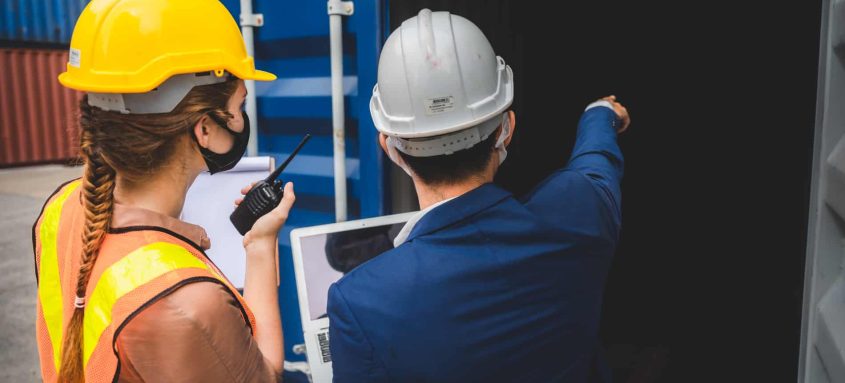
The COVID-19 Pandemic and Its Effect on the Logistics Supply Chain
The Global Impact
of COVID-19
The total impact of the COVID-19 virus cannot not be underestimated or easily calculated. Whether it causes Chinese factory workers to be quarantined due to exposure or dock and warehouse workers refusing to unload foreign cargo for fear of exposure, this disease is slowing worldwide production and product delivery to a crawl.
Everything in today's economy IS AFFECTED BY a supply chain SHORTAGE
RISING FUEL COSTS RAISE ALL SHIPPING AND GOODS COSTS
As crude oil approaches $100 a barrel, it becomes more and more apparent that rising fuel costs affect the cost of EVERYTHING. High price fuel increases the cost of operating the ships, which raises the cost of shipping the containers, which raises the cost of the goods inside, even before these orders are loaded onto trucks which generally carry 600 gallons of fuel with 6-10 miles per gallon fuel economy.
This translates into higher prices for everything from toys and TV to apparel and groceries….which leads many shippers to opt for rail transport which is somewhat less costly but is generally slower than overland trucks, and doesn’t eliminate the need for delivery from rail yard to warehouse by truck and trailer. The more links in the supply chain you add, the more opportunity there is for delays, damages and loss.
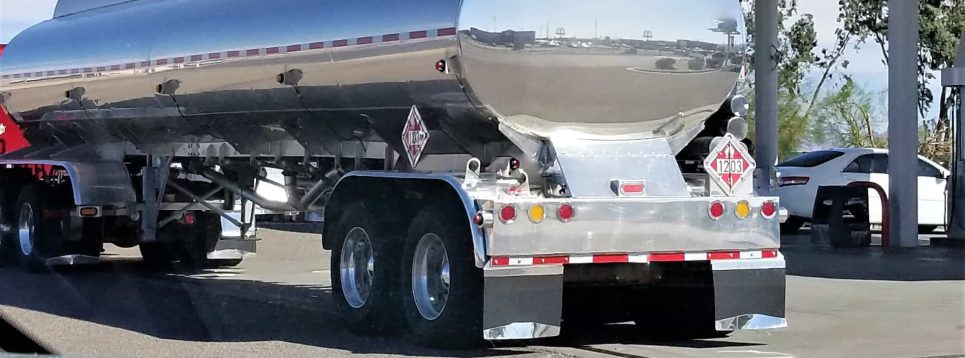
A Shortage of 80,000 truck drivers is taking it’s toll on the Global Supply Chain
SHORTAGES OF TRUCKS AND DRIVERS
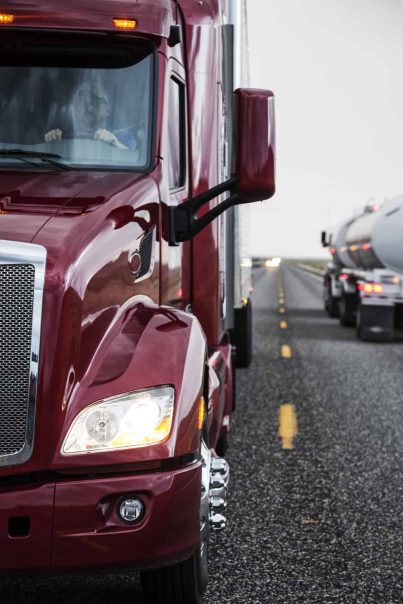
According to Truckinfo.net, there are more than two million tractor trailers operating in the US today. But most of these are committed to picking up large loads at point of entry and hauling those goods (often mixed categories with electronics loaded with toys or apparel) to distribution points where they are often stored while waiting for further distribution. Often, goods needed for immediate delivery languish while waiting for a distribution decision.
The truck driver shortage is growing worse, with it now estimated at 80,000 up from 61,000 just three years ago.
Furthermore, trucks and trailers sitting at ports often wait as much as eight hours to be loaded and return to the road.
MASSOOD SPECIALIZES IN FURNITURE WAREHOUSING AND FREIGHT CONSOLIDATION
Supply Chain Management...What's the Solution?
Many pundits believe the answer is more trains, trucks and warehouses but this is an overly simplistic answer to a complex challenge.
Edward Massood, president and CEO of Massood Logistics, an east coast operation with four locations and twenty five years in the business, explains...
“A warehouse is just a storage facility. Consumer goods don’t need to be stored, they need to be MOVED. This takes skilled labor, special handling equipment, in an operation designed for complex logistics” Massood continues “We routinely receive bulk goods in the afternoon, break them down to individual cartons, label them for the customer, then ship them out for last mile delivery the next morning”
Massood Logistics - Third Party Logistics Company Providing E-commerce Fulfillment
Massood Logistics has its roots in the trucking business, so they have been handling goods for decades. They offer full 3PL services, including furniture warehousing, e-commerce fulfillment, product assembly, pick & pack, private labeling, drop shipping, order fulfillment, and last mile delivery.
In addition, Massood Logistics has just added a new division specializing in freight consolidation. The new firm, Massood Transport, will assist retailers who utilize multiple suppliers by consolidating those goods into one shipment, saving time and operating more efficiently.
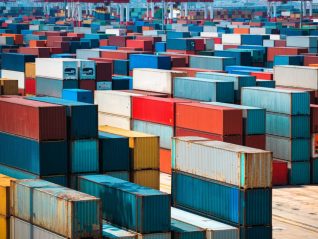
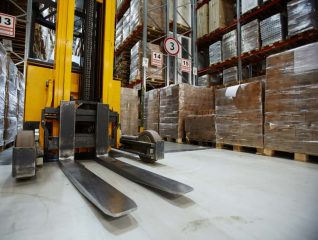
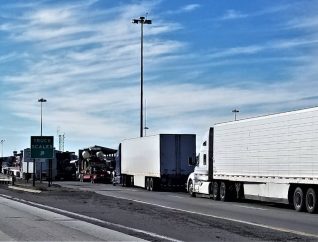
Massood Logistics is located in Archdale, North Carolina. They can be reached 336-635-4500 or your can contact us online.
